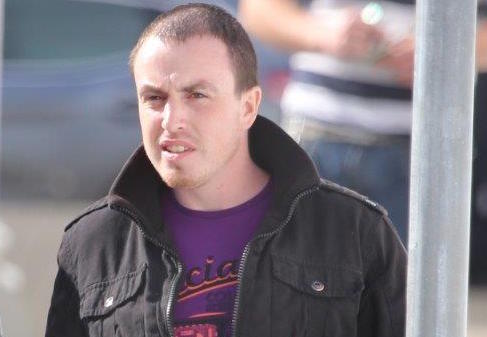A Kerrykeel man jailed over Ireland’s first case of coercive control is to be allowed to return to Donegal after a court ruled that he has nowhere else to live.
Kevin Dunleavy was given a 21-month prison sentence after pleading guilty of harassing ex-partner Caoimhe Crossan when he bombarded her with almost 6,000 phonecalls in just a three month period in 2019.
The 33-year-old became so obsessed with his girlfriend and mother of his son that he forced her to take her phone everywhere with her so he knew where she was.
He called on her on Facetime and made her scan the place she was so he knew exactly where she was.
He pleaded guilty to a number of charges including coercive control, harassment and making threats to damage property.
Coercive control is the way an abusive person, currently or previously an intimate partner, gains and maintains power and control over another person by subjecting them to psychological, physical, sexual, emotional or financial abuse, regardless of gender or sexuality.
During the original sentence in 2019, Detective Garda Darren Carter had revealed family and friends of Ms Crossan, a mother of three, were genuinely fearful for her safety from Mr Dunleavy.
He gave a detailed account of a number of incidents in which the accused threatened and attacked Ms Crossan.
On one occasion he came into a bar and pulled her out by the collar of her jumper and gave her a severe beating.
He also burnt her clothes and broke her hair straighteners to prevent her from going out.
The couple had known each other since they were both 14 years old and had been going out since 2012.
In what is the first successful prosecution of coercive control in the country, Judge John Aylmer sentenced the accused to a total of two and a half years but suspended the final nine months of the sentence.
Dunleavy is due to be released on February 19th next.
As part of his release conditions, Dunleavy was due to live and work in Dublin with his uncle who operated a painting and decorating company.
However, an application was made by Dunleavy’s barrister Mr Peter Nolan at Letterkenny Circuit Court that he be allowed to reside at his family home in Kerrykeel because the offer of the original address and job in Dublin was no longer there.
Mr Nolan said that his client had no problem with all the other conditions imposed by the court including having no contact with the victim and remain under the care and supervision of the Probation services.
However, he now found himself homeless as jobless as a result of the collapse of his uncle’s decorating business in Dublin due to the downturn from the Covid pandemic.
Mr Nolan argued that the victim in the case now lives in Letterkenny which is 20 miles from Kerrykeel and that his client is prepared to give any undertaking the court required not to go near her or her family.
However, Garda Darren Carter strongly objected to the application saying that this condition had been of great comfort to the victim.
“Our main concern is the welfare and safety of the victim. We still believe he poses a risk and he has shown previously that he will not abide by the conditions imposed,” he said.
He added that although Ms Crossan is living in Letterkenny she is originally from Milford and her family are from the wider Milford and Kerrykeel area and she depends on them for a support network.
“We believe it is best if Mr Dunleavy is not resident in the county,” he added.
A letter read out in court from Jerry Williams, the Resettlement Officer at Castlerea Prison, said that he was concerned that Dunleavy may be at risk of coming to harm if he had nowhere to go once released and asked if the condition made “pre-Covid” could be changed.
Barrister Nolan suggested that it would be “draconian” to allow Dunleavy to leave prison with no support saying there is a way around this.
Judge John Aylmer said that when the decision was made that Dunleavy would reside in Dublin it was made pre-Covid but that everything is so different and “unfortunately that has changed.”
He said the court had to now go a different way to devise a different end for Dunleavy’s release.
To that end, he imposed a number of conditions including that Dunleavy does not come within 10 kms of Letterkenny unless he is enjoying pre-arranged access to his son, that he not come within 50 metres of Ms Crossan and two other named victims Katrina Boyce and Frances Crossan.
Address Dunleavy directly Judge Aylmer said “I want to impress upon Mr Dunleavy that if there is any breach of that order then the Probation service must bring the matter back to me.
“This will mean that it is capable of triggering the balance of the nine-month sentence so you better be very careful and not to be in any breach.”
Tags:








